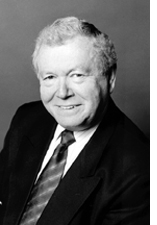By Rabbi Dow Marmur

JERUSALEM — By all accounts, the most admirable feature of American Thanksgiving is that it’s being celebrated by all citizens. Irrespective of religious affiliation, skin colour or income, all Americans feel the need to give thanks for the country in which they live, even when they’re grossly disadvantaged in comparison to others.
Yom Ha’atzmaut, Israel’s Independence Day that marks, according to the Jewish calendar, the anniversary of the establishment of the State of Israel in 1948 has the potential of being that kind of day. Unfortunately, it isn’t, at least not yet.
A substantial part of Israel’s population looks at Independence Day as an occasion for grief and anger. First, Arabs who’re Israeli citizens mark the day as the anniversary of their disenfranchisement and alienation. Most feel that they cannot be true to themselves and sing the Hatikva, Israel’s national anthem.
Second, ultra-Orthodox (haredi) Jews see in Israel – the glorious fruit of the Zionist enterprise – a sign of lethal arrogance: instead of patiently waiting for redemption while doing God’s work (as haredim understand it), the Zionists have taken Jewish destiny into their own hands and thus, according to them, defied God’s will. And Israelis have often done it in what their Orthodox critics would deem to be non-Jewish ways.
The rest – mercifully still the majority – do celebrate the day, but we haven’t yet found a unifying way of doing it. The equivalent of Thanksgiving Dinner is a barbeque, often in a local park; some people go out very early to make sure that they get the “right” spot to engage in a kind of contemporary secular version of animal sacrifices.
And then there’s television. The inauguration of the celebration that takes place the evening before was marred this year by the death of a young woman soldier on whom a structure collapsed because it was fraudulently and improperly erected. It cast a shadow on the televised proceedings.
Less on the day and more the day before, the Memorial Day for fallen soldiers and victims of terror, politicians make use of the occasion to tell the people of real and imagined threats from outside. It’s their way of urging us to be strong and self-reliant. The at-times vivid descriptions of specific threats and general manifestations of anti-Semitism aren’t exactly conducive to a happy mood.
Coupled with this year’s exhortations was the government’s announcement that Jewish settlements in the West Bank, originally deemed illegal in Israeli law, have now been made legal. This, of course, is another reason for Arabs not to celebrate, nor for liberal Jews who believe that commitment not only to the letter but to the spirit of the law is essential for the survival of the Jewish state. We’re fearful of the shrill patriotism.
Nevertheless, though Israel Independence Day isn’t what it could and should be, most Jews – perhaps especially those who remember what the world was like before there was an Israel or who can imagine what it would become for us Jews if, God beware, Israel were no more – rejoice in the day and mark it in commitment and with hope.
At no time is it possible to forget the misgivings or set aside the criticisms, for it’s beyond human capacity to experience unalloyed happiness. Yet, I’m among those who celebrate Yom Ha’atzmaut with enthusiasm and with the words the Psalmist on my lips: “This is the day God has made; we will rejoice and be glad in it!”
*
Rabbi Marmur is spiritual leader emeritus of Holy Blossom Temple in Toronto. Now dividing his time between Canada and Israel, he may be contacted at dow.marmur@sdjewishworld.com